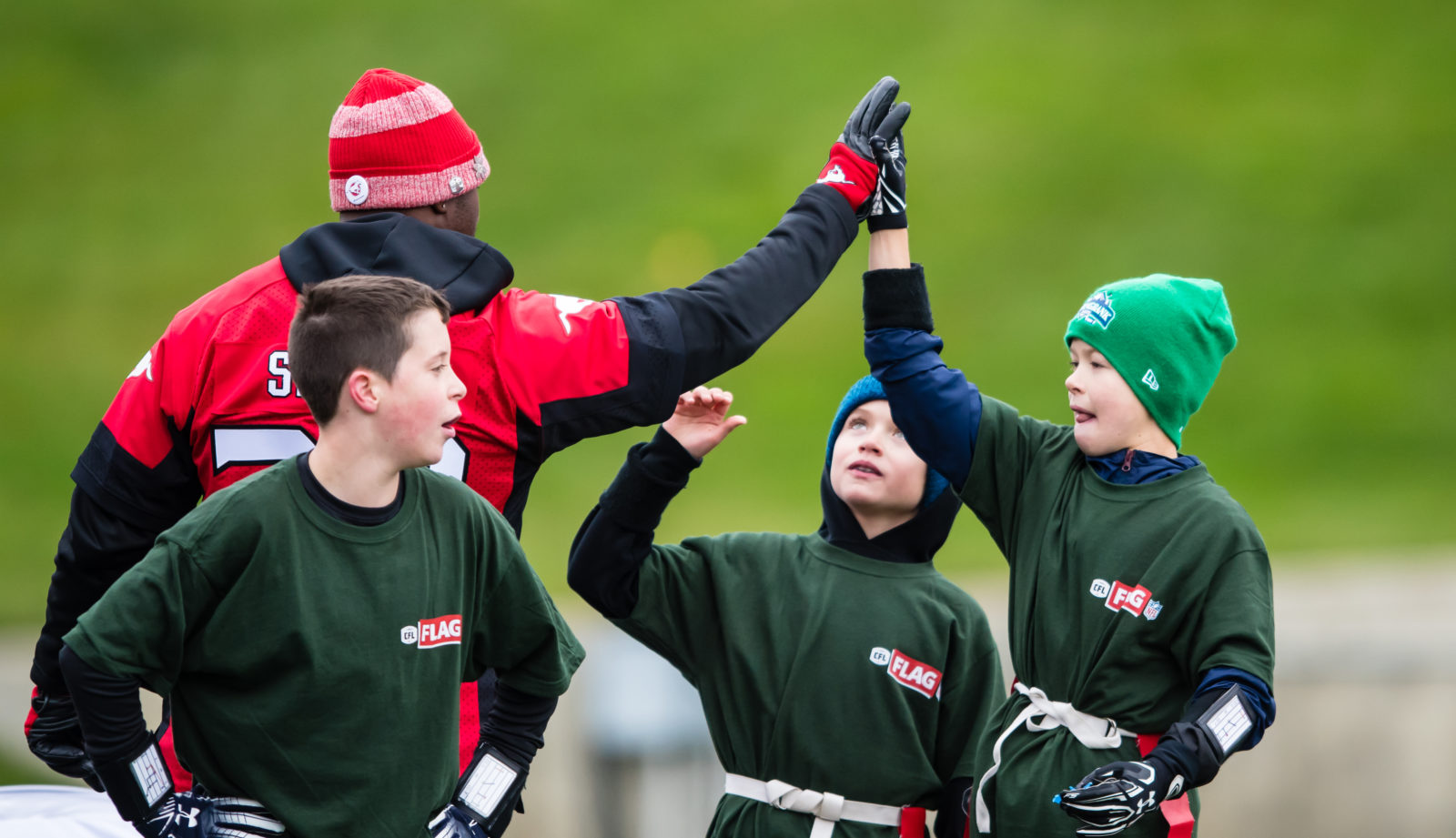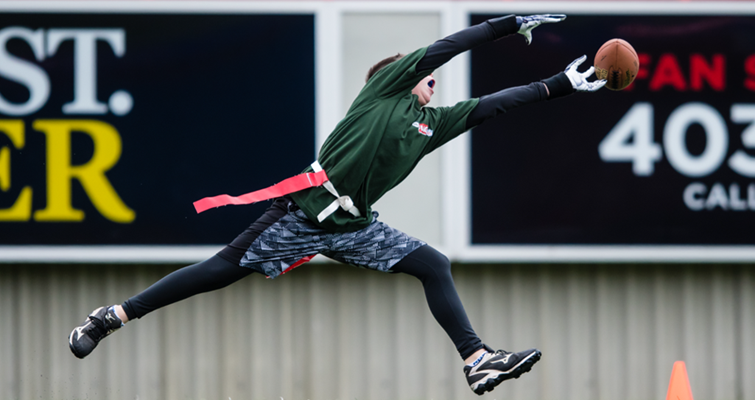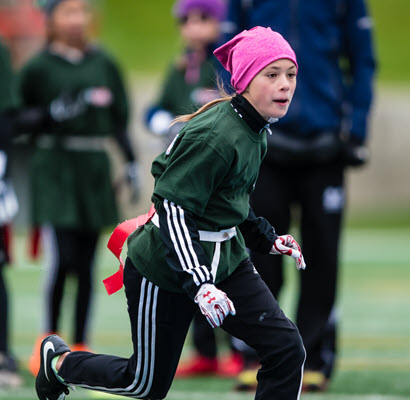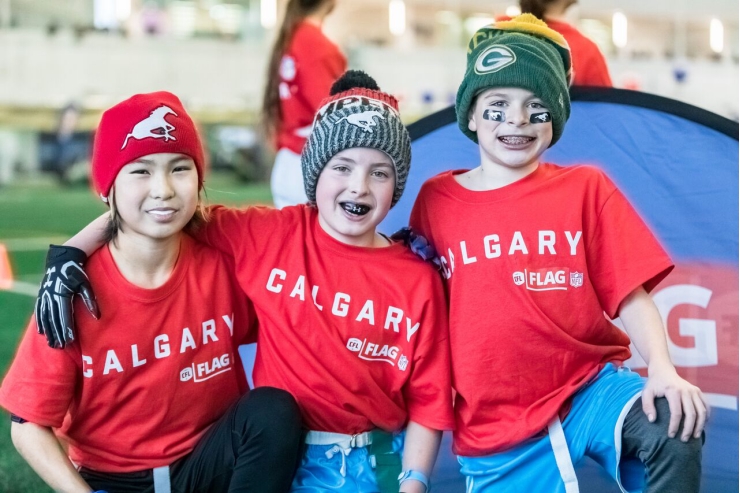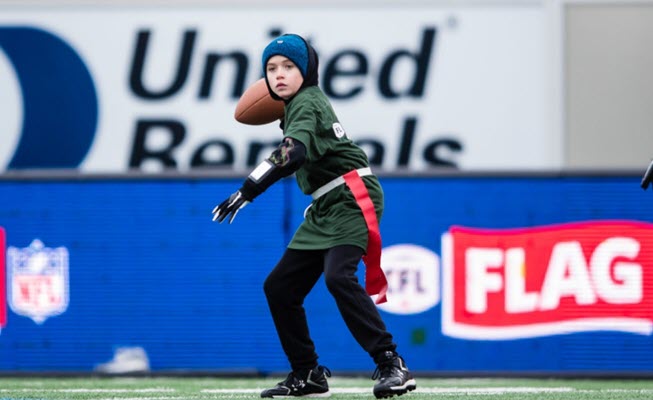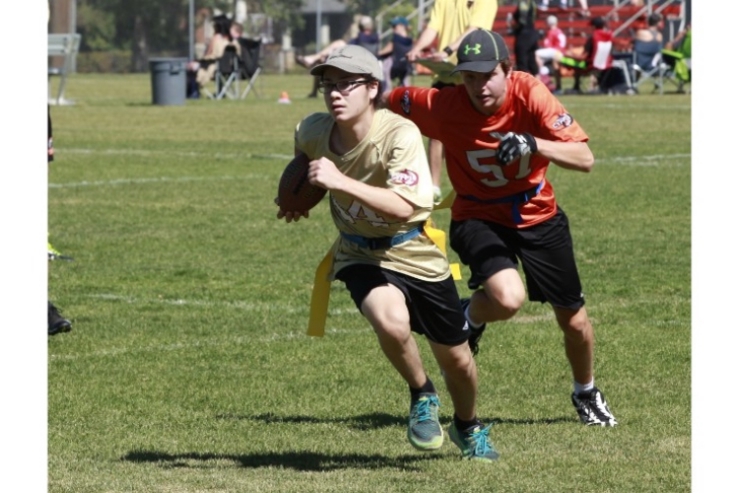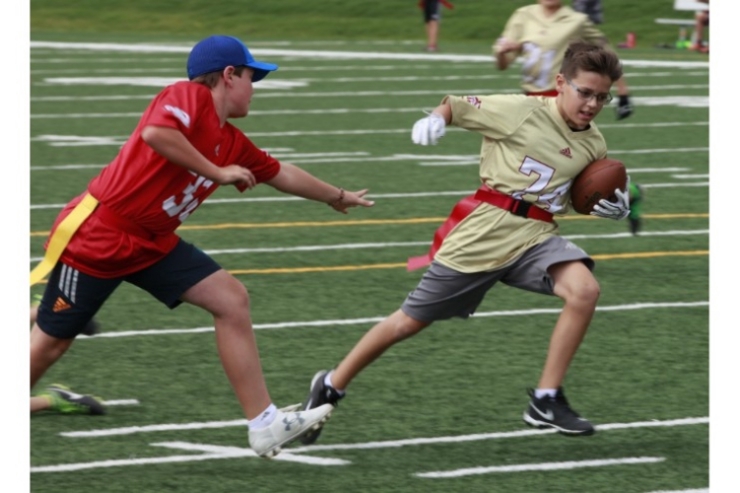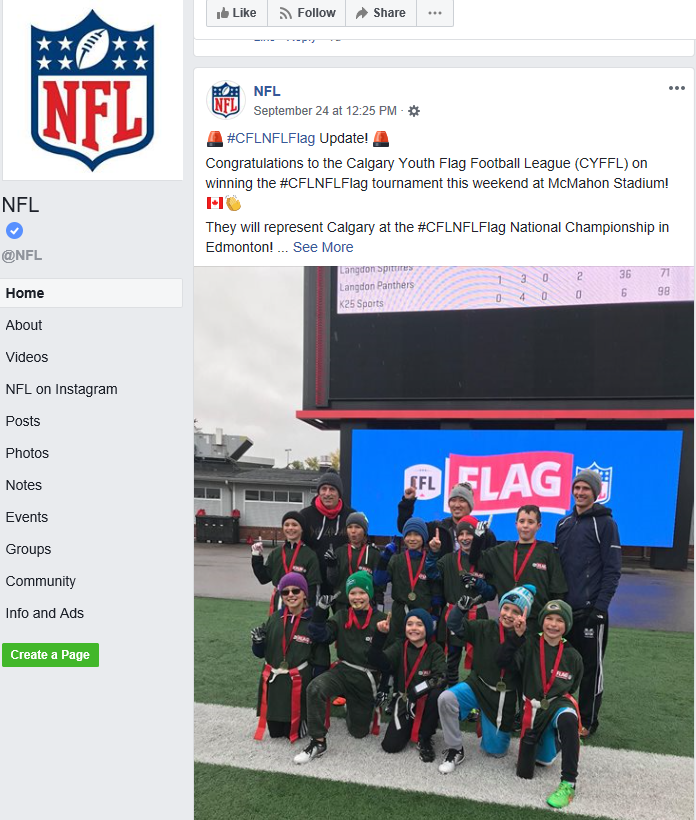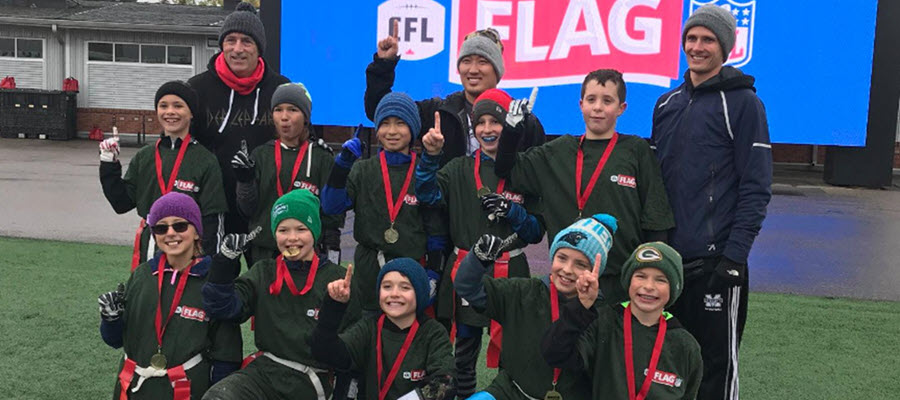These rules aim to ensure fair play, strategic moves, and responsible conduct on the field for a thrilling and safe football experience. Canadian Amateur Football rules apply for unmentioned cases.
- Coaches' Conduct: Coaches must ensure good conduct, can assist in play calls. No coaching is allowed after the ball is snapped. On-field coaches may communicate with the referee and receive ruling explanations.
- Downs and Increments: Teams have five or six downs to cross an increment, earning five or six more downs upon success. Re-crossing an increment doesn't count as a first down.
- Coin Toss and Rotations: Winning team chooses possession; the losing team selects the field end. In lower divisions, equal ball possession is ensured; late-game situations adjust positions to maintain equal possessions.
- Player Spacing and Responsibilities: Receivers must be balanced, 5 yards apart. Running close patterns leads to an illegal crossing penalty the most common penalty.
- Touchdowns and Possession Change: After a touchdown and point-after attempt, the opposing team takes possession on their 20-yard line.
- Point-After Attempts: Only passing plays are allowed for PAT attempts, from the 3 or 10-yard line, earning 1 or 2 points respectively.
- Game Play and Dead Balls: The play stops if anything other than the ball carrier's hands or feet touch the ground; protecting flags during runs is not allowed.
- No Punting: A team forfeits possession after their last down, with the ball placed at center field.
- Center and Rusher Rules: Centers have a clear path for 4 yards (lower division) or 7 yards (Midget); rushers have specific starting positions to avoid interference.
- Forward passes: Only one forward pass is allowed per play.
- Passing Rules: Forward passes must travel at least 5 yards in the air; no lateral passes are allowed behind the line or in lower divisions.
- Tipped Ball: If a player tips the ball towards the opponent’s goal to a teammate, the catch is legal unless deliberately directed forward, in which case, the ball is not advanced and is scrimmaged at the point of direction
- No Blocking: Blocking is prohibited.
- Flag Management: Players must ensure flags are properly attached; loss of a flag results in being considered “tackled”.
- Offensive and Defensive Actions: Penalties apply for flag pulls without possession, protecting flags, and charging the opponent.
- Defensive Play: Man-on-Man Defense is standard, with exceptions in Midget teams allowed Zone Defense but mandated Man-on-Man on conversions. No helping teammates in lower divisions during Man-on-Man Defense.
- Defensive Obstruction: Illegal when a defensive player impedes a receiver’s intended path without contact. Results in a five-yard penalty from the line of scrimmage and a repeat of the down.
- .Offensive and Defensive Penalties in Target and Non-Target Areas: Penalties vary, including yardage deductions, loss of down, automatic first downs, or ball placement based on the infraction's location.
- Double and Dual Fouls: Non-offending teams choose penalties; roughing added if one of the fouls is roughing. Penalties are applied based on the order they occurred or the moment the ball was held for the first foul.
- Game Ejection: Players will be ejected for fighting, extreme rough play, or two roughing penalties in a single game.
- Divisions that have a set number of plays in a half: Penalties within the last 8 plays of the game or half will not be counted as a play if they repeat the down.
Inadvertent Whistle if the ball is:
Possession with offense- Choice to place the ball at line of scrimmage and repeat the down OR at the point of possession, continuing downs.
Defensive possession - Ball is placed at the point of possession, granting a first down.
In the air on a forward pass - Ball is placed at the line of scrimmage, repeating the down.
Penalties during a Convert - No yardage penalties unless it's a dead ball foul or a roughing call.
- Overtime Rules: Lower-seeded team starts; overtime plays from the 20-yard line, with 4 plays per team. If tied, repeats with 3 plays, alternating who starts. Normal player rotations must continue during overtime.
